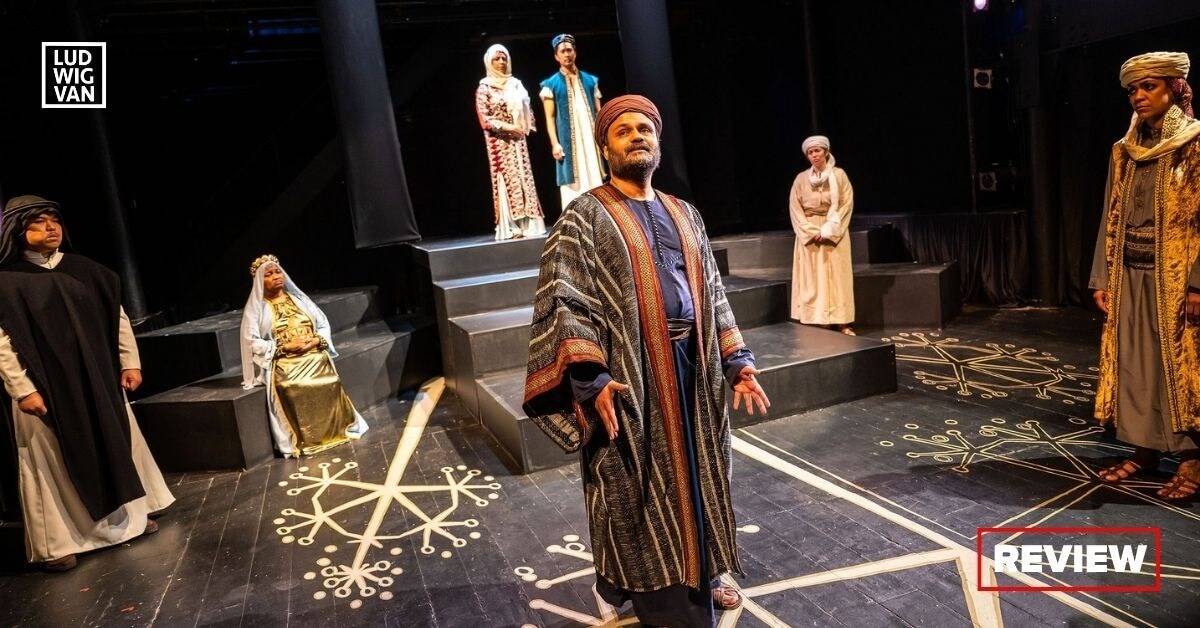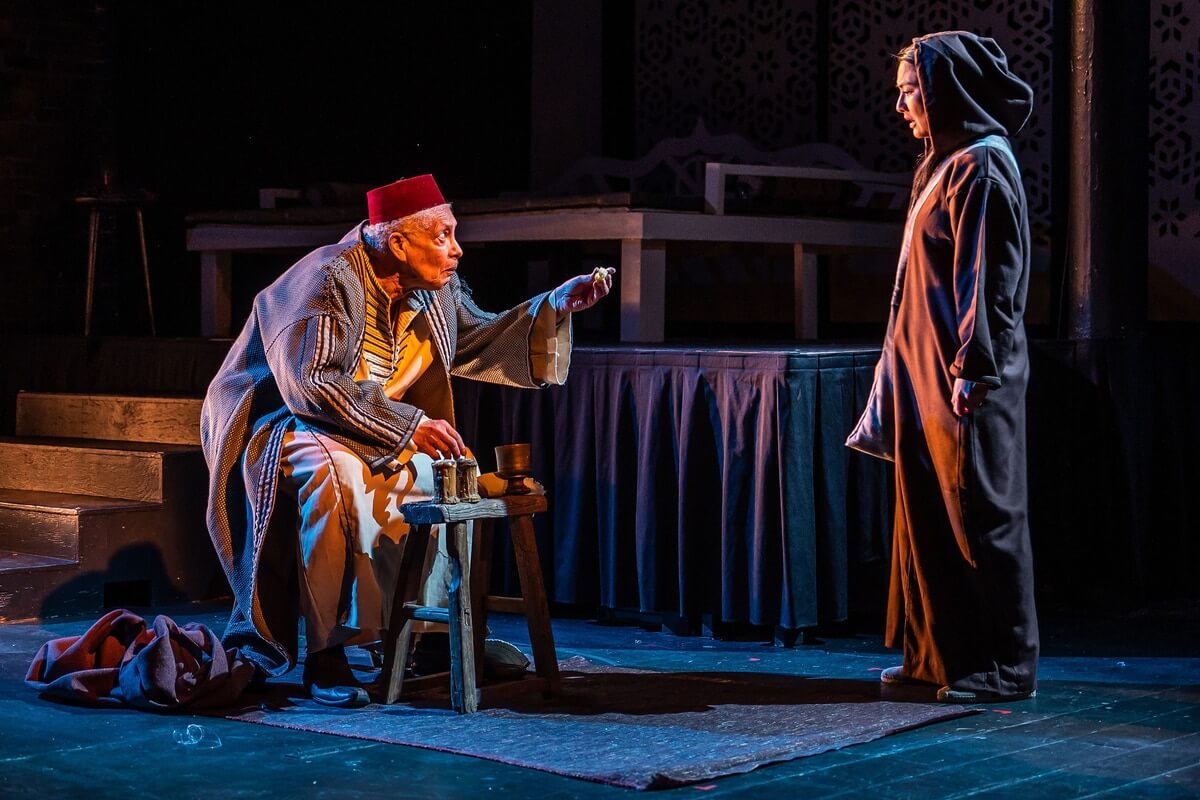
Phoenix Arts & Aga Khan Museum/1184, written by Azeem Nathoo, directed by Jamie Robinson, Theatre Passe Muraille Mainspace, Apr. 20 to May 1. Tickets available here.
If there ever was a production that deserved an A for effort, it is 1184. Playwright Azeem Nathoo has taken on a vast topic with real-life characters, and has tried to make them relevant to audiences of 2022. He comes close, but no cigar.
Nathoo’s central idea is Convivencia, the term given to the 500 years of Muslim rule (the 8th to 13th centuries) when Muslims, Jews and Christians lived in relatively peaceful co-existence in Andalusia, in southern Spain. These years are also considered the Golden Age for both the Muslims and the Jews.
As I watched the play, I couldn’t help thinking that 1492, when the Muslims are defeated by the Christian monarchs, is just 100 years away, bringing with it the Spanish Inquisition and forced conversions. In 1184, however, Convivencia is still the rule of the day, although cracks are starting to show.
Taking on the Middle Ages is no mean feat, and Nathoo has a plethora of ideas that he wants to address — perhaps, too many.
In his program notes, Nathoo says he was inspired by historical research, and uncovering the real truth by combining the different perspectives of the three Abrahamic religions. He states he’s looking for “What worked, what didn’t, and if not, why not?”
Here are some of the main story lines whirling around 1184, (and there are others).
First, there is Ibn Rushd, also known as Averroes (Nathoo himself). When the old caliph dies, his son Ya’qub (Adriano Sobretodo Jr.) takes over the throne and rejects Ibn Rushd who was a favoured and trusted advisor to his father. Ya’qub’s mother (Quancetia Hamilton) and wife Buthaina (Roula Said) are also against Ibn Rushd, who is replaced as Chief Justice by the female Mada (Joella Crichton).
As for Ibn Rushd himself, as his fortunes reverse, he conducts conversations in his head with his friend, the great Jewish scholar and philosopher Rabbi Moses Maimonides (Neta J. Rose).
Then there is the arrival of the female monk referred to as Pilgrim (Jennifer Villaverde). She comes bearing the Vatican’s seal. Her goal, and Pope Lucius III’s, is to get the Muslims and King Alfonso of Portugal (Walter Borden) to agree to peace, in order to save the lives of soldiers.
On the other hand, the sinister Cardinal Crivelli (Crichton again) warns Alphonso of a change of policy. Crivelli will become Pope Urban III, when the ailing Lucius dies next year. Crivelli brings the dictum that a Third Crusade to take back Jerusalem is now the mandate, not peace on the Iberian Peninsula.
Pilgrim also develops a close relationship with a Jewish bookseller and Ibn Rushd’s great friend (Borden again), so we have the theme of keeping learning alive, and preserving the tree of knowledge.

Thus, following the twists and turns of the plot is a dizzying aspect. Most of the characters are real historical figures, but it is hard to grasp exactly what Nathoo is saying about them. Perhaps the main take-away, is that in rejecting Ibn Rushd, the Caliphate lost a great man of wisdom.
Play performances have rhythm. It’s a physical thing, and sadly, Hamilton broke that rhythm with halting delivery and fluffed lines. As well, Borden, whom I’ve admired for years, obscured his words. I could barely make out what he was saying in either of his key roles. Together, they pulled the performance off the rails.
The good news is that director Jamie Robinson manoeuvres his large cast around the stage so they aren’t tripping over each other. He could, however, have deepened character. The most substantive conversations are between Ibn Rushd and Maimonides, but the others are, for the most part, ciphers.
On the other hand, the set and costume designs of Anahita Dehbonehie and Niloufar Ziaee are absolutely gorgeous. Another wow factor is the glorious Arabic-influenced music by composer Roula Said, while Jennifer Jimenez’s atmospheric lighting is also impressive. It seems that no cost was spared in the production values.
In the final analysis, one has to admire Nathoo for his chutzpah in delving into a huge topic. Too many themes, however, muddy the waters.
#LUDWIGVAN
Get the daily arts news straight to your inbox.
Sign up for the Ludwig van Daily — classical music and opera in five minutes or less HERE.
- INTERVIEW | Actor Diego Matamoros Takes On Icon Walt Disney In Soulpepper Production Of Hnath Play - April 16, 2024
- SCRUTINY | Opera In Concert Shine A Light On Verdi’s Seldom Heard La Battaglia Di Legnano - April 9, 2024
- SCRUTINY | Lepage & Côté’s Hamlet Dazzles With Dance And Stagecraft Without Saying Anything New - April 5, 2024



